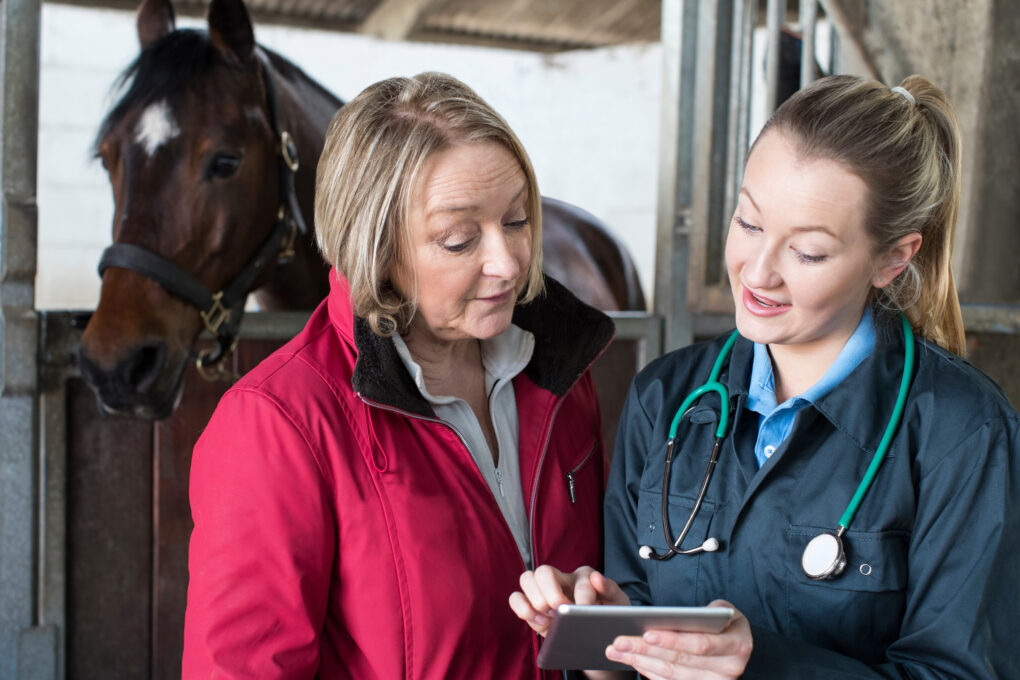Published 27 September 2023 | Updated 30 October 2025
Introduction
With reports of a significant outbreak of feline infectious peritonitis in Cyprus, and advances in the options for diagnosis and treatment, we thought this would be a good time to provide links to some of the latest guidance and research.
Outbreak of feline infectious peritonitis in Cyprus
Since January 2023 there has been a significant increase in the number of cats in Cyprus diagnosed with Feline Infectious Peritonitis (FIP). Current work is being undertaken to sequence the viral strain involved in order to understand its spread and control.
- FIP outbreak in Cyprus affects increasing number of cats (2023) [International Cat Care] [online]. Available from: https://icatcare.org/fip-outbreak-cyprus/ [Accessed 20 September 2023]
- BVA statement on FIP cases in cats in Cyprus (2023) [BVA] [online]. Available from: https://www.bva.co.uk/news-and-blog/news-article/bva-statement-on-fip-cases-in-cats-in-cyprus/ [Accessed 20 September 2023]
- An alarming outbreak of Feline Infectious Peritonitis (FIP) in Cyprus (2023) [FECAVA] [online]. Available from: https://www.fecava.org/news-and-events/news/an-alarming-outbreak-of-feline-infectious-peritonitis-in-cyprus/ [Accessed 20 September 2023]
- Attipa, C. et al. (2023) Concerning feline infectious peritonitis outbreak in Cyprus. Veterinary Record, 192 (11), pp. 449-450. https://doi.org/10.1002/vetr.3143
- Warr, A. et al. (2023), FCoV-23 causing FIP in a cat imported to the UK from Cyprus. Veterinary Record, 193 (10), pp. 414-415. https://doi.org/10.1002/vetr.3696
Guidelines and factsheets
- Feline infectious peritonitis (FIP) (2025) [International Cat Care] [online]. Available from: https://icatcare.org/articles/feline-infectious-peritonitis-fip [Accessed 30 October 2025]
- Taylor, S. et al. (2025) An update on the treatment of feline infectious peritonitis (July 2025) [International Cat Care] [online] Available from: https://icatcare.org/resources/icatcare_fipupdate_july25.pdf [Accessed 28 October 2025]
- Sorrell, S. et al. (2024) Feline infectious peritonitis (FIP) information for caregiver [International Cat Care] [online] Available from: https://icatcare.org/resources/fip-caregiver-brochure.pdf [Accessed 28 October 2025]
- Thayer, V. et al. (2022) AAFP/EveryCat feline infectious peritonitis diagnosis guidelines. Journal of Feline Medicine and Surgery, 24 (9), pp. 905-933. https://doi.org/10.1177/1098612X221118761
- Kennedy, M.A. (2020) Feline infectious peritonitis: update on pathogenesis, diagnostics, and treatment. Veterinary Clinics: Small Animal Practice, 50 (5), pp. 1001-1011. https://doi.org/10.1016/j.cvsm.2020.05.002
- GUIDELINE for feline infectious peritonitis (2009) [European Advisory Board on Cat Diseases] [online]. Available from: https://www.abcdcatsvets.org/guideline-for-feline-infectious-peritonitis/ [Accessed 20 September 2023]
- FACTSHEETS & TOOLS for feline infectious peritonitis (FIP) [European Advisory Board on Cat Diseases] [online]. Available from: https://www.abcdcatsvets.org/portfolio-item/factsheets-tools-for-feline-infectious-peritonitis-fip/ [Accessed 20 September 2023]
Diagnostic tests
- Lopes, R. et al. (2024) Feline Infectious Peritonitis Effusion Index: A Novel Diagnostic Method and Validation of Flow Cytometry-Based Delta Total Nucleated Cells Analysis on the Sysmex XN-1000V®. Veterinary Sciences, 11 (11), 563. https://doi.org/10.3390/vetsci11110563
- Müller, T.R. et al. (2023) Abdominal ultrasonographic findings of cats with feline infectious peritonitis: an update. Journal of Feline Medicine and Surgery, 25 (12). https://doi.org/10.1177/1098612X231216000
- Stranieri, A. et al. (2018) Comparison of the performance of laboratory tests in the diagnosis of feline infectious peritonitis. Journal of Veterinary Diagnostic Investigation, 30 (3), pp. 459-463. https://doi.org/10.1177/1040638718756460
- Felten, S. and Hartmann, K. (2019) Diagnosis of feline infectious peritonitis: a review of the current literature. Viruses, 11 (11), no. 1068. https://doi.org/10.3390/v11111068
- Tasker, S. (2018) Diagnosis of feline infectious peritonitis: Update on evidence supporting available tests. Journal of Feline Medicine and Surgery, 20 (3), pp. 228-243. https://doi.org/10.1177/1098612X18758592
Treatment options
- Mir, S. et al. (2025) From challenge to cure: a look at feline infectious peritonitis and emerging treatment strategies and breakthroughs. Veterinary Sciences, 12 (7), no. 650. https://doi.org/10.3390/vetsci12070650
- Gao, F. and Wen, G. (2025) Strategies for combating FIPV infection: antiviral agents and vaccines. Research in Veterinary Science, 192, no. 105709. https://doi.org/10.1016/j.rvsc.2025.105709
- An update on treatment of FIP in the UK (2023) [International Cat Care] [online]. Available from: https://icatcare.org/app/uploads/2023/03/An-update-on-treatment-of-FIP-in-the-UK-2023.pdf [Accessed 20 September 2023]
- Sorrell, S., Pugalendhi, S.J. and Gunn-Moore, D. (2022) Current treatment options for feline infectious peritonitis in the UK. Companion Animal, 27 (6), pp. 79-90. https://doi.org/10.12968/coan.2022.0016
Antiviral drugs
The protease inhibitor, GC376, which is able to inhibit viral replication in feline infectious peritonitis (FIP) was shown to have some effect but was not able to achieve remission in all cats.
The nucleoside analogues remdesivir and GS-441524 (the active form of the pro-drug remdesivir) have been legally available to vets in the UK for the treatment of FIP in cats since August 2021. The literature around these products has evolved rapidly and there are now longer term follow up studies and clinical trials being published.
BSAVA members may be interested in the client information leaflets provided in the BSAVA Library.
- GS-441524 [BSAVA] [online]. Available from: https://www.bsavalibrary.com/content/cil/medicines/GS-441524 [Accessed 20 September 2023]
- Remdesivir [BSAVA] [online]. Available from: https://www.bsavalibrary.com/content/cil/medicines/remdesivir [Accessed 20 September 2023]
A Knowledge Summary, published in Veterinary Evidence, concludes that there is now moderate evidence that these products can extend the survival time of cats suffering from feline infectious peritonitis. Further evidence will be added to this section as it is published.
- Mulligan, A. J. and Browning, M. E. (2024) Quality assessment and characterization of unregulated antiviral drugs for feline infectious peritonitis: implications for treatment, safety, and efficacy. American Journal of Veterinary Research. https://doi.org/10.2460/ajvr.23.10.0221
- Kent, A. M. et al. (2024) Unlicensed antiviral products used for the at-home treatment of feline infectious peritonitis contain GS-441524 at significantly different amounts than advertised. Journal of the American Veterinary Medical Association. https://doi.org/10.2460/javma.23.08.0466
Knowledge Summary
Nekouei, O. et al. (2022) Potential therapeutic effects of GS-441524 and GC376 in cats with feline infectious peritonitis. Veterinary Evidence, 7 (1). https://doi.org/10.18849/ve.v7i1.522
In vitro studies
- Murphy, B. G. et al. (2018) The nucleoside analog GS-441524 strongly inhibits feline infectious peritonitis (FIP) virus in tissue culture and experimental cat infection studies. Veterinary Microbiology. 219, pp. 226–233. https://doi.org/10.1016/j.vetmic.2018.04.026
- Barua, S. et al. (2023) Comparative evaluation of GS-441524, teriflunomide, ruxolitinib, molnupiravir, ritonavir, and nirmatrelvir for in vitro antiviral activity against feline infectious peritonitis virus. Veterinary Sciences, 10 (8), no. 513. https://doi.org/10.3390/vetsci10080513
Case studies and case series
- Buchta, K. et al. (2025) Myocarditis in cats with feline infectious peritonitis can be cured with GS-441524 and symptomatic cardiovascular treatment. Animals, 15 (11), no. 1660. https://doi.org/10.3390/ani15111660
- Renner, K.A. et. al. (2025) Efficacy of oral remdesivir in treating feline infectious peritonitis: a prospective observational study of 29 cats. Journal of Feline Medicine and Surgery, 27 (5). https://doi.org/10.1177/1098612X251335189
- Coggins, S.J. et al. (2025) Pharmacokinetics of GS-441524 following intravenous remdesivir in six cats and results of therapeutic drug monitoring during treatment of feline infectious peritonitis: 22 cases (2021–2024). Journal of Small Animal Practice. https://doi.org/10.1111/jsap.13849
- Goto, S., Kamiyoshi, T. and Iwasaki, R. (2024) Predictive factors associated with short-term mortality in cats with feline infectious peritonitis treated with remdesivir or GS-441524 or both. Journal of Veterinary Internal Medicine, 39 (1), e17249 . https://doi.org/10.1111/jvim.17249
- Sase, O. et al. (2024) GS-441524 and molnupiravir are similarly effective for the treatment of cats with feline infectious peritonitis. Frontiers in Veterinary Science, 11. https://doi.org/10.3389/fvets.2024.1422408
- Allinder, M. et al. (2024) Uroliths composed of antiviral compound GS-441524 in 2 cats undergoing treatment for feline infectious peritonitis. Journal of Veterinary Internal Medicine, 38 (1), pp. 370-374. https://doi.org/10.1111/jvim.16954
- Pedersen, N. C. et al. (2018) Efficacy of a 3C-like protease inhibitor in treating various forms of acquired feline infectious peritonitis. Journal of Feline Medicine and Surgery, 20 (4), pp. 378–392. https://doi.org/10.1177%2F1098612X17729626
- Taylor, S.S. et al. (2023) Retrospective study and outcome of 307 cats with feline infectious peritonitis treated with legally sourced veterinary compounded preparations of remdesivir and GS-441524 (2020–2022). Journal of Feline Medicine and Surgery, 25 (9). https://doi.org/10.1177/1098612X231194460
- Lv, J. et al. (2022) Effect of GS-441524 in combination with the 3C-like protease inhibitor GC376 on the treatment of naturally transmitted feline infectious peritonitis. Frontiers in Veterinary Science, 9, no. 1002488. https://doi.org/10.3389/fvets.2022.1002488
- Pedersen, N. C. et al. (2019) Efficacy and safety of the nucleoside analog GS-441524 for treatment of cats with naturally occurring feline infectious peritonitis. Journal of Feline Medicine and Surgery, 21 (4), pp. 271–281. https://doi.org/10.1177%2F1098612X19825701
- Green, J., Syme, H. and Tayler, S. (2023) Thirty‐two cats with effusive or non‐effusive feline infectious peritonitis treated with a combination of remdesivir and GS‐441524. Journal of Veterinary Internal Medicine, 37 (5), pp. 1784-1793. https://doi.org/10.1111/jvim.16804
- Dickinson, P.J. et al. (2020) Antiviral treatment using the adenosine nucleoside analogue GS‐441524 in cats with clinically diagnosed neurological feline infectious peritonitis. Journal of veterinary internal medicine, 34 (4), pp.1587-1593. https://doi.org/10.1111/jvim.15780
- Krentz, D. et al. (2021) Curing cats with feline infectious peritonitis with an oral multi-component drug containing GS-441524. Viruses, 13 (11), no. 2228. https://doi.org/10.3390/v13112228
- Zwicklbauer, K. et al. (2023) Long-term follow-up of cats in complete remission after treatment of feline infectious peritonitis with oral GS-441524. Journal of Feline Medicine and Surgery, 25 (8). https://doi.org/10.1177/1098612X231183250
- Sase, O. (2023) Molnupiravir treatment of 18 cats with feline infectious peritonitis: A case series. Journal of Veterinary Internal Medicine, 37 (5), 1876-1880. https://doi.org/10.1111/jvim.16832
- Roy, M. et al. (2022) Unlicensed Molnupiravir is an effective rescue treatment following failure of unlicensed GS-441524-like therapy for cats with suspected feline infectious peritonitis. Pathogens, 11 (10), no. 1209. https://doi.org/10.3390/pathogens11101209
Clinical trials
- LaVigne, E.K. et al. (2025) Spectrum of care approach to animal shelter management of feline infectious peritonitis complicated by feline leukemia virus. Frontiers in Veterinary Science, 12. https://doi.org/10.3389/fvets.2025.1570267
- Kamiyoshi, T., Kamiyoshi, N., and Jintake, C. (2025) High-dose induction therapy and treatment termination criteria for feline infectious peritonitis with remdesivir, GS-441524 and adjunctive mefloquine: 46 cases (2023). Journal of Small Animal Practice. https://doi.org/10.1111/jsap.13869
- Clark, T.M. et al. (2025) Treatment of feline infectious peritonitis in cats with molnupiravir: clinical observations and outcomes for 54 cases. Australian Veterinary Journal. https://doi.org/10.1111/avj.13433
- Negash, R. et al. (2024) Owner experience and veterinary involvement with unlicensed GS-441524 treatment of feline infectious peritonitis: a prospective cohort study. Frontiers in Veterinary Science, 11. https://doi.org/10.3389/fvets.2024.1377207
- Coggins, S.J. et al. (2023) Outcomes of treatment of cats with feline infectious peritonitis using parenterally administered remdesivir, with or without transition to orally administered GS‐441524. Journal of Veterinary Internal Medicine, 37 (5), pp. 1772-1783. https://doi.org/10.1111/jvim.16803
- Cosaro, E. et al. (2023) Efficacy of oral remdesivir compared to GS-441524 for treatment of cats with naturally occurring effusive feline infectious peritonitis: A blinded, non-inferiority study. Viruses, 15 (8), no.1680. https://doi.org/10.3390/v15081680
Co-infection
- Izes, A.M. et al. (2020) Current status on treatment options for feline infectious peritonitis and SARS-CoV-2 positive cats. Veterinary Quarterly, 40 (1), pp. 322-330. https://doi.org/10.1080/01652176.2020.1845917
- Moyadee, W. et al. (2023) The first study on clinicopathological changes in cats with feline infectious peritonitis with and without retrovirus coinfection. Veterinary World, 16 (4), pp.820-827. https://doi.org/10.14202%2Fvetworld.2023.820-827
About evidence collections
Evidence collections bring together collections of published papers on topics of interest and importance to the veterinary professions. Papers are chosen for relevance and accessibility, with the full text of articles either being available through the RCVS Knowledge library, on open access or from other publications to which a significant number of veterinary professionals are likely to have access. This means that there may be relevant evidence that is not included.
If you would like assistance in searching for further evidence on this topic you may find the following helpful EBVM Toolkit 2: Finding the best available evidence.
If you would like to suggest a paper for inclusion in one of our published evidence collections, or a topic for a future collection, please email library@rcvsknowledge.org
Next steps

Receive journal watch by email
